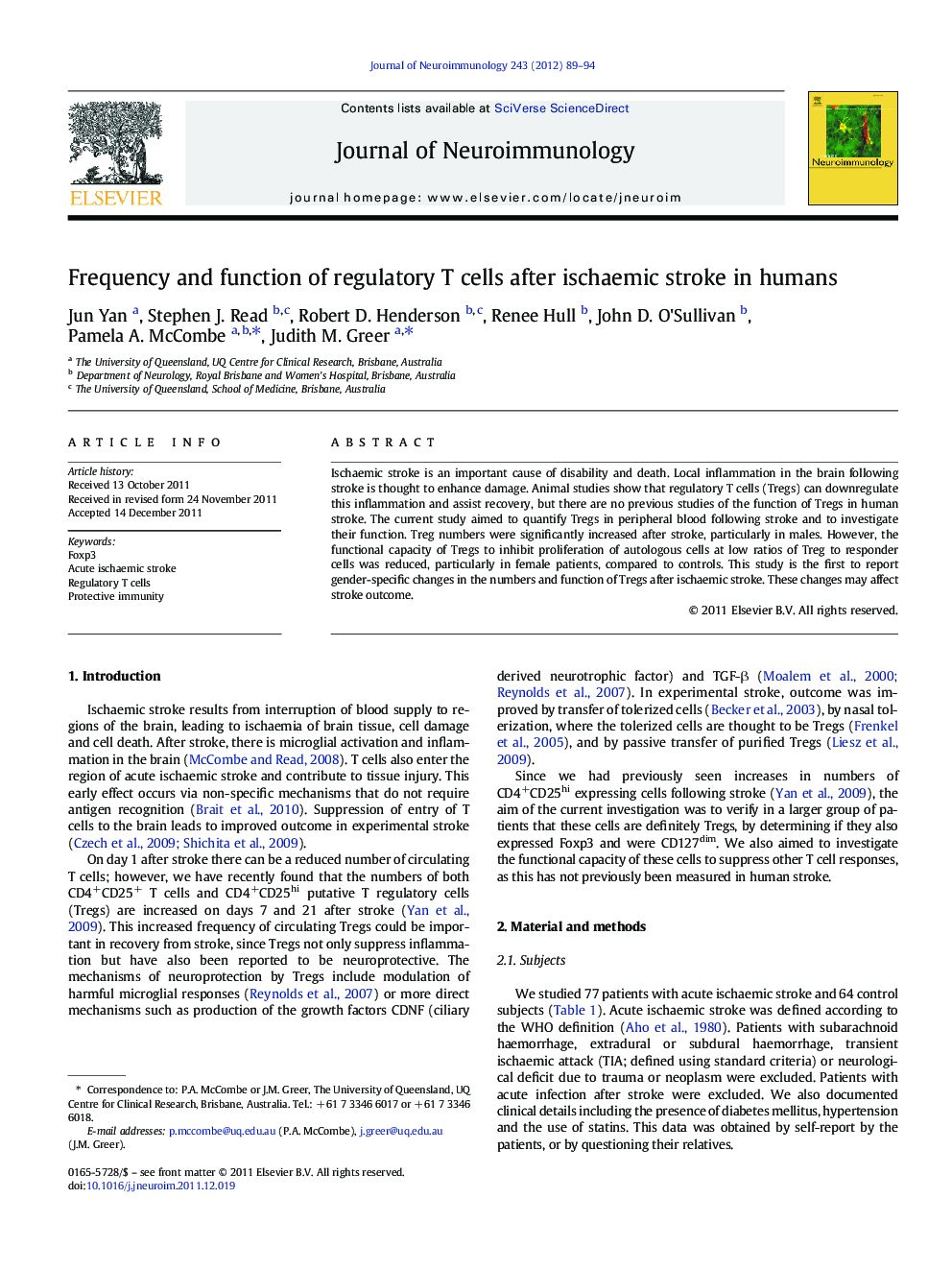| Article ID | Journal | Published Year | Pages | File Type |
|---|---|---|---|---|
| 3064317 | Journal of Neuroimmunology | 2012 | 6 Pages |
Ischaemic stroke is an important cause of disability and death. Local inflammation in the brain following stroke is thought to enhance damage. Animal studies show that regulatory T cells (Tregs) can downregulate this inflammation and assist recovery, but there are no previous studies of the function of Tregs in human stroke. The current study aimed to quantify Tregs in peripheral blood following stroke and to investigate their function. Treg numbers were significantly increased after stroke, particularly in males. However, the functional capacity of Tregs to inhibit proliferation of autologous cells at low ratios of Treg to responder cells was reduced, particularly in female patients, compared to controls. This study is the first to report gender-specific changes in the numbers and function of Tregs after ischaemic stroke. These changes may affect stroke outcome.
